There is a short introduction available for the book of 2 Kings. You can read it here.
Key Themes (2 Kings)
The book of 2 Kings continues the narrative of Israel and Judah from where 1 Kings left off, covering the fall of both kingdoms and their eventual exile. It details the reigns of various kings, the ministries of prophets like Elisha, and the progressive spiritual decline that leads to the destruction of Israel and Judah. The key themes include:
- The Decline and Fall of Israel and Judah: A central theme in 2 Kings is the gradual decline of both the northern kingdom of Israel and the southern kingdom of Judah. The book chronicles the unfaithfulness of the kings and the people, leading to the eventual fall of Israel to the Assyrians and Judah to the Babylonians. This theme underscores the consequences of persistent disobedience and idolatry, culminating in the loss of the Promised Land and exile.
- Idolatry and Apostasy: 2 Kings repeatedly emphasizes the destructive influence of idolatry in both Israel and Judah. Many of the kings and their people turn away from worshiping the true God, engaging in idol worship and practices that are condemned by the prophets. This theme highlights the dangers of turning away from God and the spiritual corruption that results from idolatry, leading to national ruin.
- The Role of Prophets: Prophets play a crucial role in 2 Kings, serving as God’s messengers to the kings and the people. Elisha, in particular, performs miracles, delivers God’s messages, and calls the people back to faithfulness. Other prophets, like Isaiah and Jeremiah, also appear, warning of impending judgment and urging repentance. This theme underscores the importance of the prophetic voice in guiding the nation and holding its leaders accountable to God’s covenant.
- God’s Judgment and Justice: The book of 2 Kings vividly portrays God’s judgment on Israel and Judah for their persistent sin and unfaithfulness. The fall of Samaria (Israel) to Assyria and the destruction of Jerusalem (Judah) by Babylon are depicted as direct consequences of the people’s refusal to follow God’s commandments. This theme emphasizes that God is just and that He will not overlook sin, especially when His people repeatedly break the covenant.
- Covenant Faithfulness and Renewal: Despite the overwhelming narrative of decline, there are moments in 2 Kings where kings attempt to renew the covenant with God. Kings like Hezekiah and Josiah stand out for their efforts to reform their nations by removing idols, restoring proper worship, and renewing the covenant with God. This theme highlights the possibility of renewal and the importance of returning to God, even in the midst of widespread apostasy.
- The Power of God: Throughout 2 Kings, God’s power is evident through the miracles performed by Elisha, the defeat of Israel’s enemies when the people repent, and the fulfillment of prophetic warnings. This theme emphasizes that God remains sovereign and powerful, capable of intervening in history and executing His will, even as His people face judgment.
- The Influence of Foreign Powers: 2 Kings details the increasing influence of foreign powers, particularly Assyria and Babylon, over Israel and Judah. The alliances, invasions, and eventual exiles show how these foreign powers become instruments of God’s judgment. This theme underscores the vulnerability of the nation when it turns away from God and relies on political alliances instead of divine protection.
- Hope Amidst Judgment: While 2 Kings primarily focuses on judgment, there are also glimpses of hope. The book ends with a note of hope for the future, as Jehoiachin, the exiled king of Judah, is released from prison in Babylon and given a place of honor. This theme suggests that despite the severity of judgment, God’s promises endure, and there is hope for restoration.
The book of 2 Kings is a sobering account of the consequences of idolatry and unfaithfulness, culminating in the fall and exile of both Israel and Judah. It highlights the crucial role of prophets in calling the nation back to God, the inevitability of divine judgment against persistent sin, and the importance of covenant faithfulness. Through its narrative of decline and fall, 2 Kings also offers a glimmer of hope, pointing to God’s enduring sovereignty and the possibility of future restoration.
What I Noticed Today (2 Kings 1-3)
2 Kings picks up right where 1 Kings left off. The first three chapters are a bit of a challenge because the narrative jumps around a little bit.
2 Kings 1:1 references the rebellion of Moab against Israel. Verses 2-18 record Ahaziah’s fall and death. 2 Kings 2 records the end of Elijah’s life and the beginning of Elisha’s prophetic ministry. 2 Kings 3 jumps back to resume the events of Moab’s rebellion against Israel.
2 Kings 1
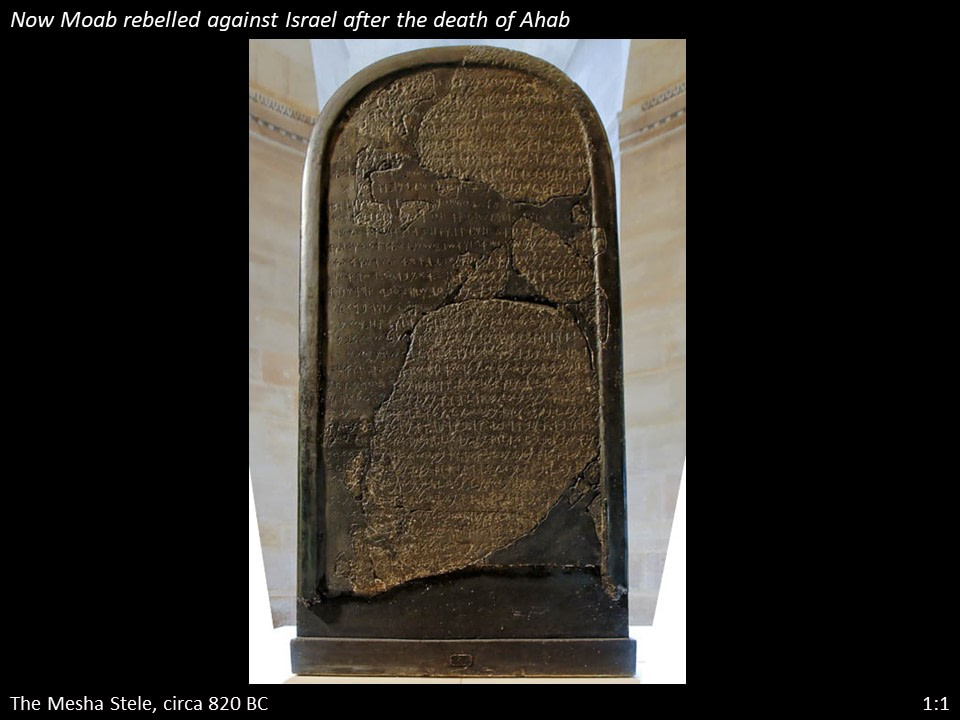
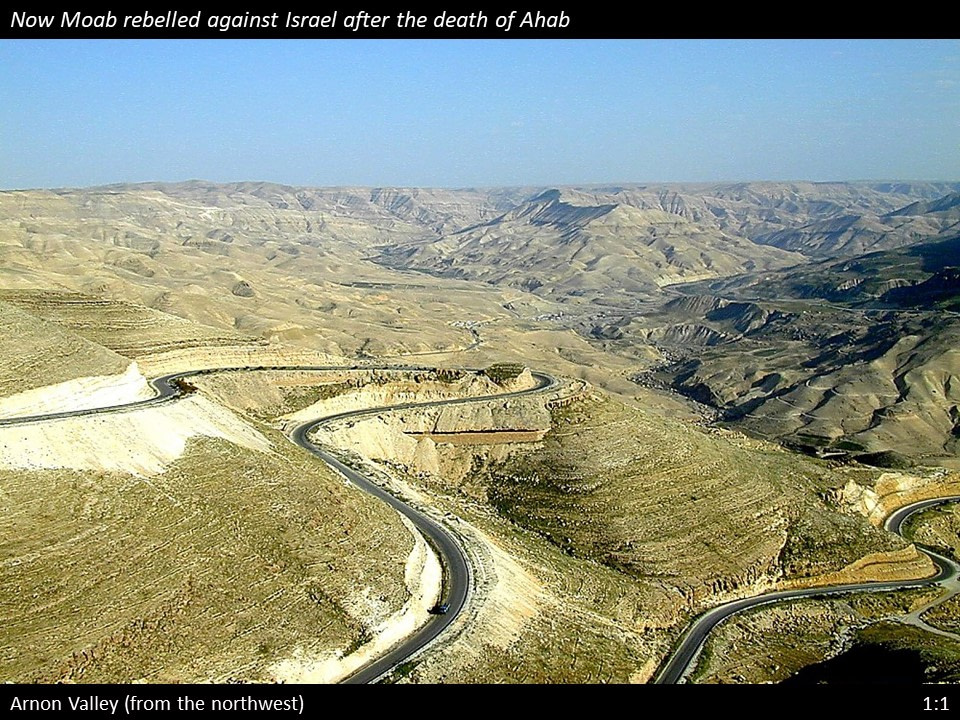
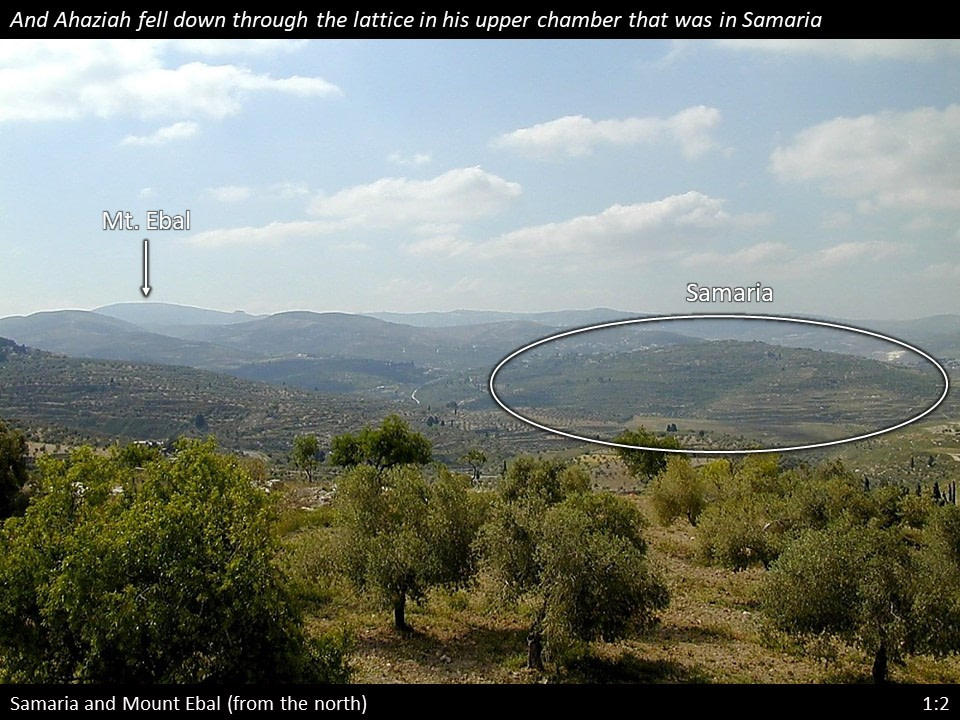
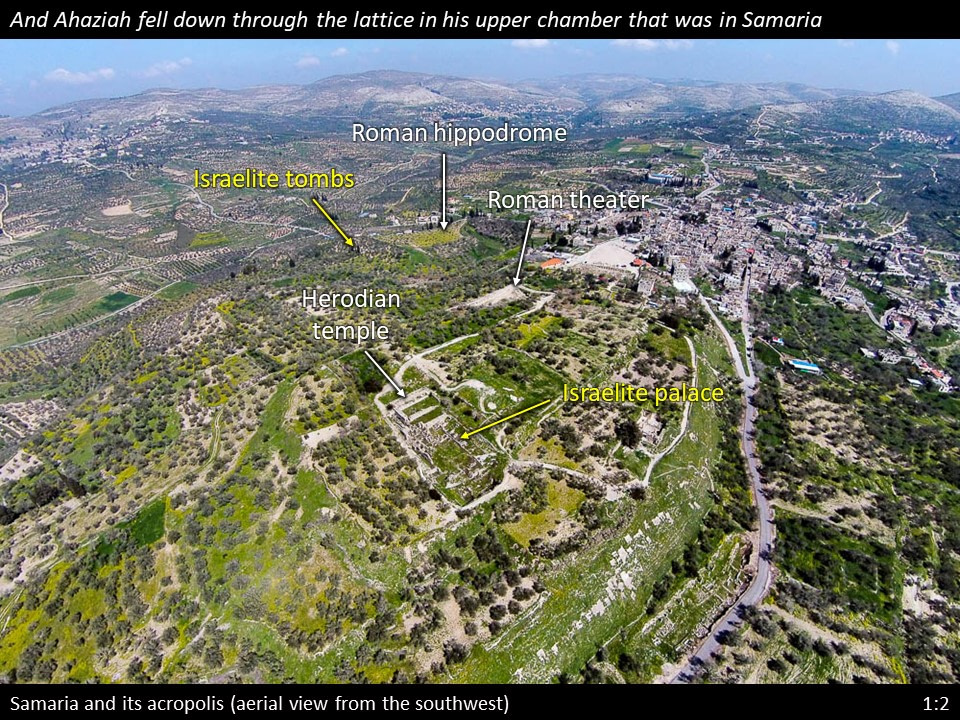
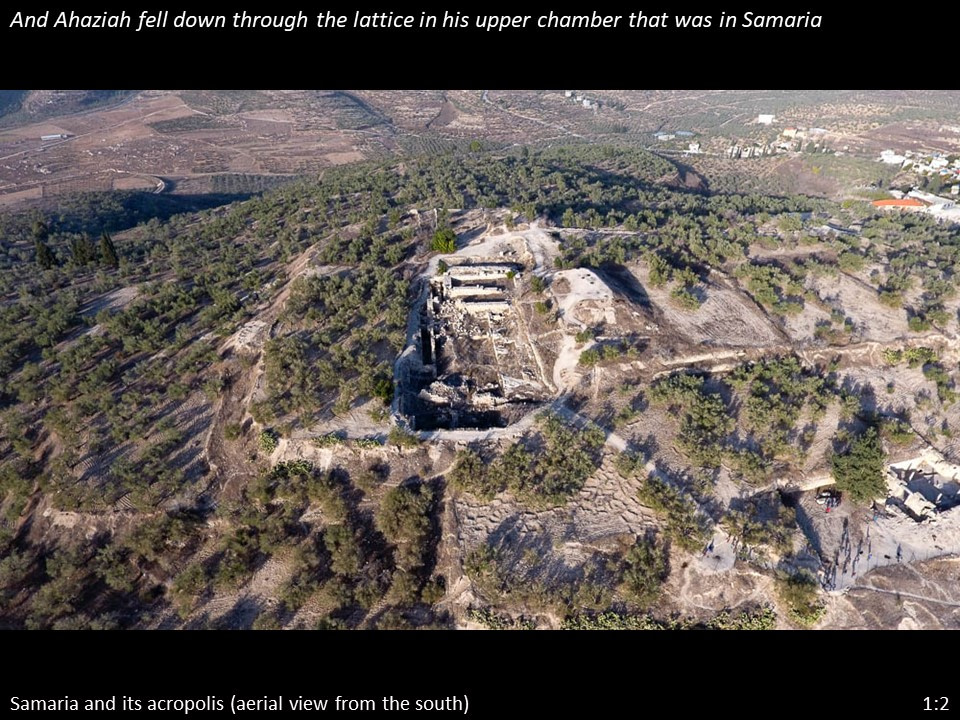
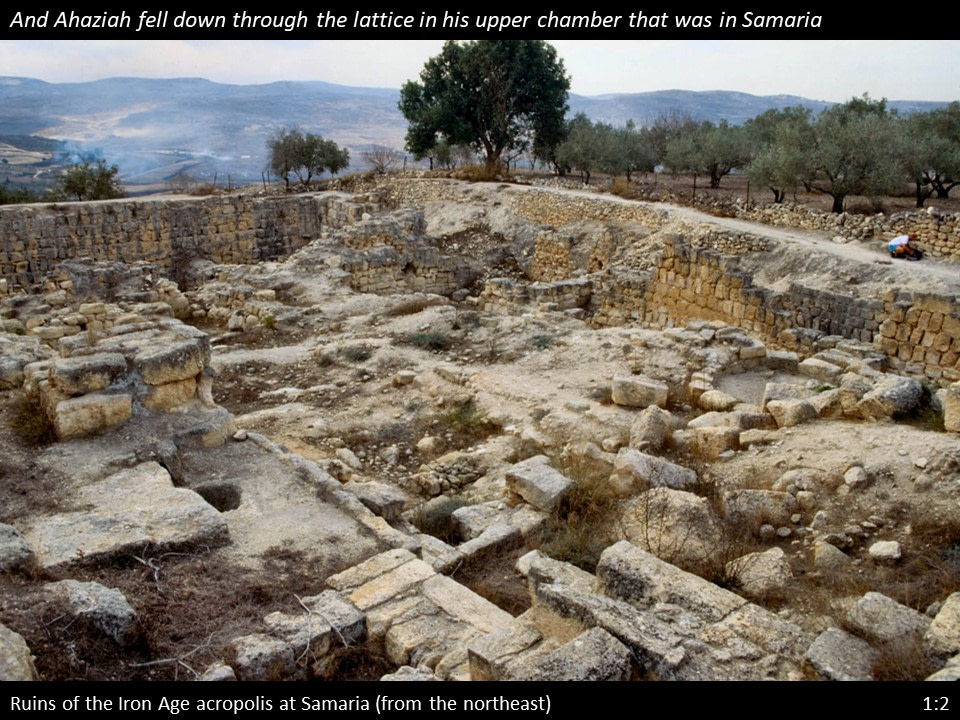
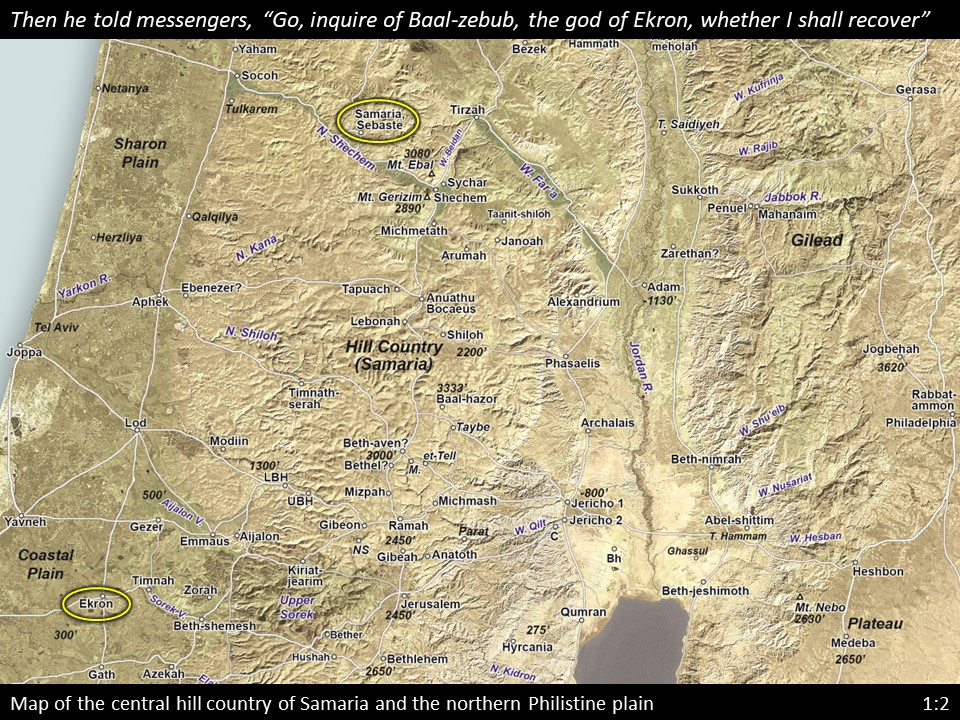
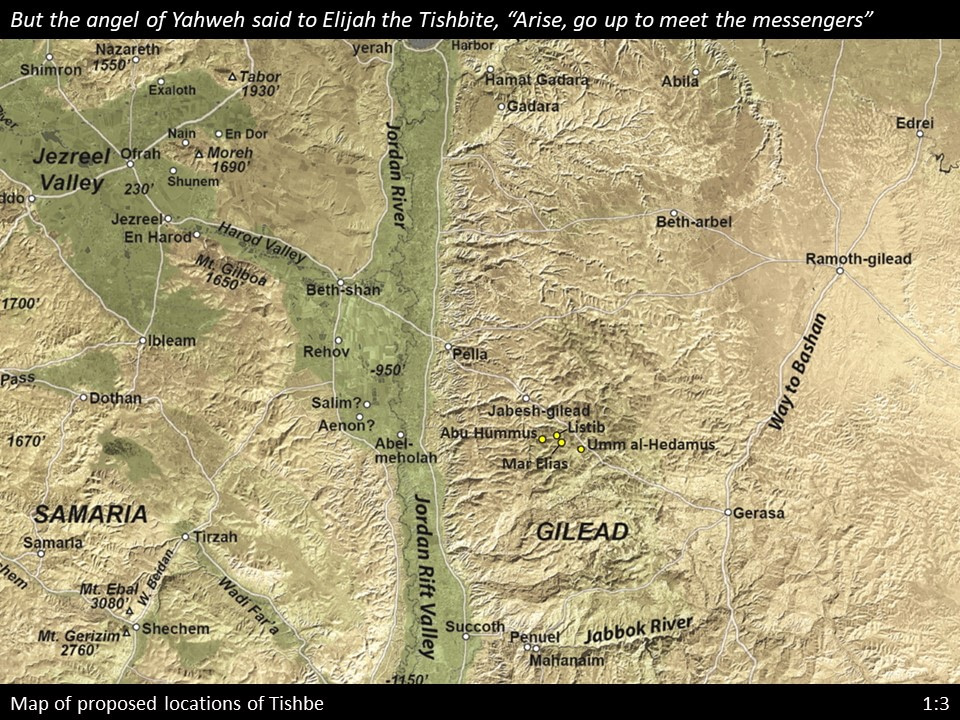
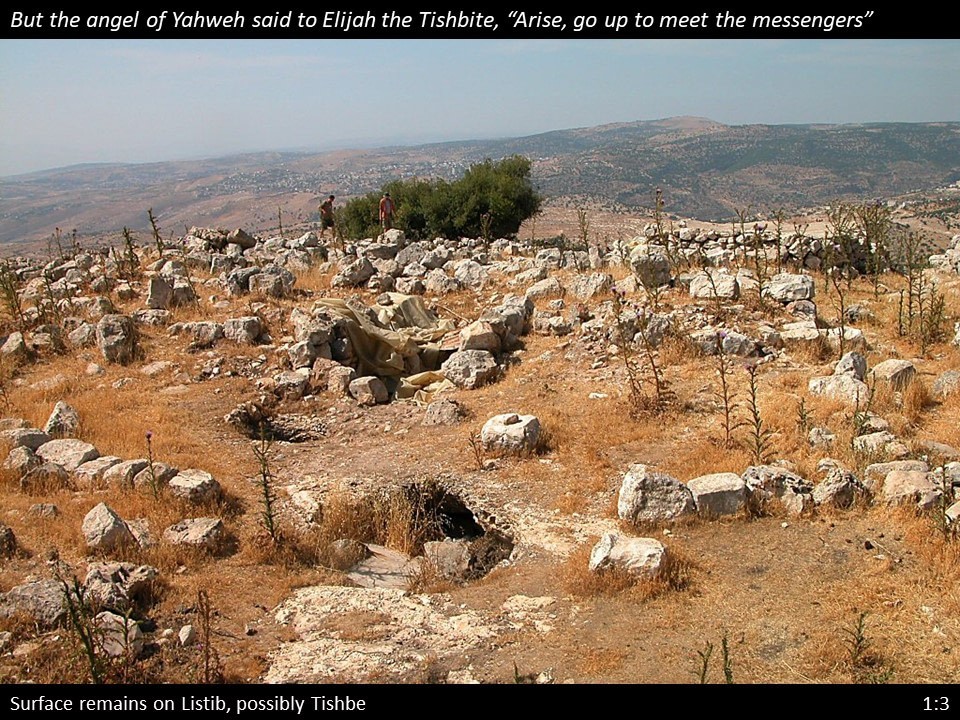
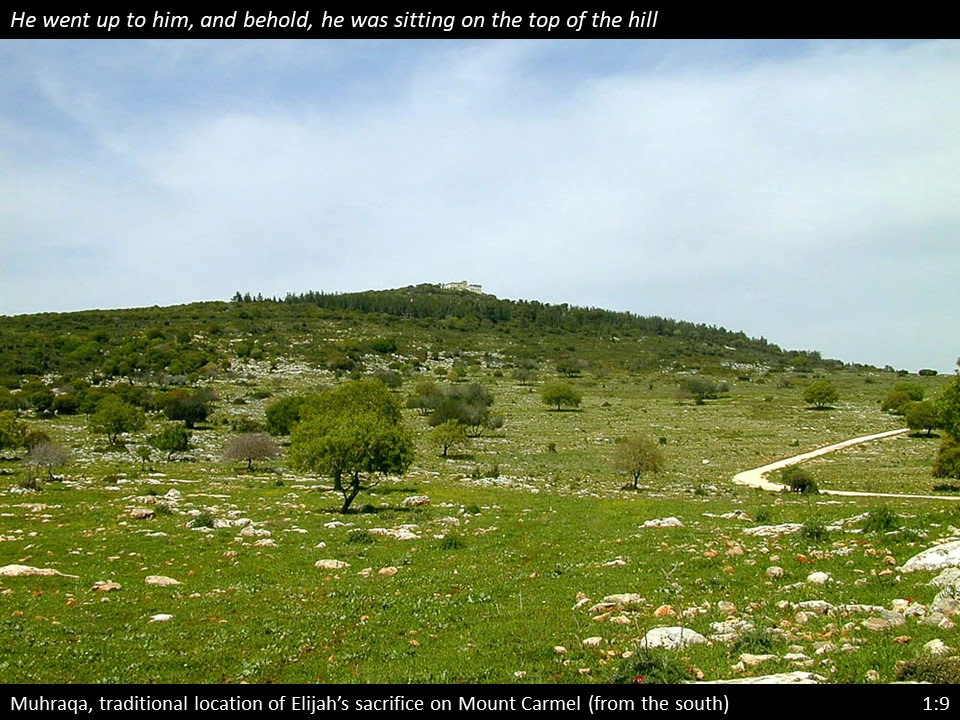
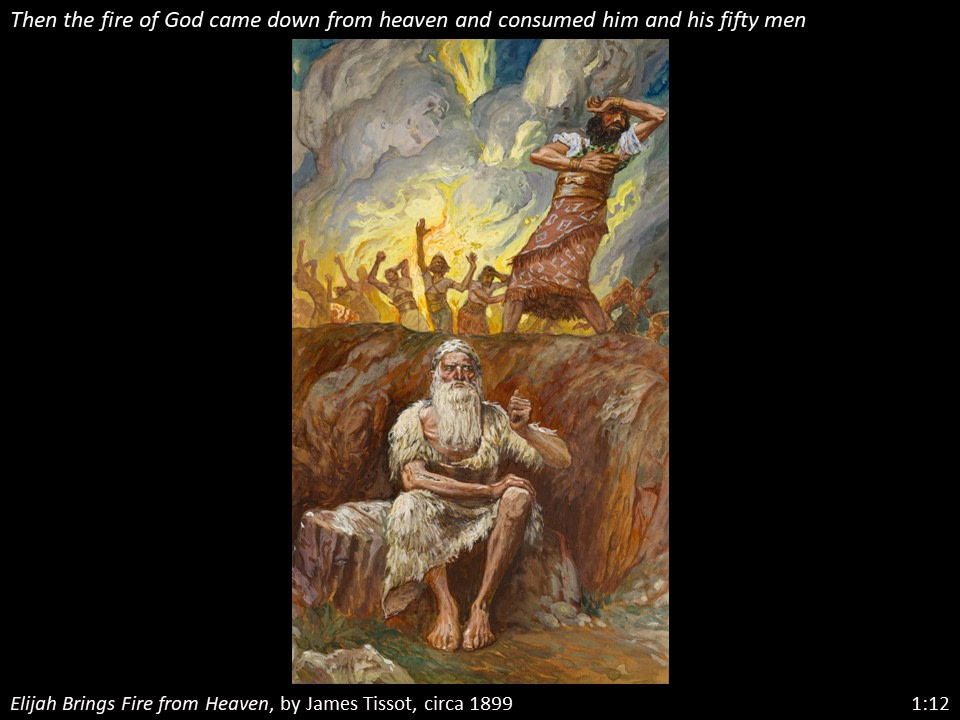

In verse 1, after Ahab, king of Israel died, Moab rebelled against Israel.
Note: The discussion of Moab’s rebellion against Israel resumes in 2 Kings 3:4-27.
In verses 8-18, Ahaziah falls and dies:
- Ahaziah fell out of the window of his upper room and was badly injured.
- He instructed his servants to go and inquire of Baal-zebub, the god of Ekron whether he would recover.
Note: Ekron is a Philistine city 40 miles away from Samaria. Baal-zebub (Baal-zebub means “lord of the flies”) is a pagan fertility idol.
- The Lord spoke to Elijah and told him to tell the king’s messengers to tell Ahaziah he would not recover.
- The king didn’t like that news and sent a garrison of 50 men to bring Elijah back.
- The men of the garrison demanded Elijah return with them to Ahaziah and the Lord consumed the garrison of soldiers with fire.
- Ahaziah sent another garrison of 50 soldiers who also demanded Elijah come with them and the Lord consumed them with fire also.
- Ahaziah sent the third garrison of soldiers. The third garrison’s leader pleaded respectfully to Elijah to spare their lives, and the angel of the Lord told Elijah to accompany this man.
- Elijah delivered the news in person to Ahaziah, and just as he had prophesied Ahaziah died.
- Since Ahaziah had no sons, his brother Joram became king of Israel in the second year of Jehoram king of Judah (852 B.C.).
Note: “Joram” is a spelling variation of “Jehoram.” So at this time, the kings of Israel and Judah were both named Jehoram. Most Bible versions distinguish between the two by referring to the king of Israel as Joram, and the king of Judah as Jehoram.
2 Kings 2
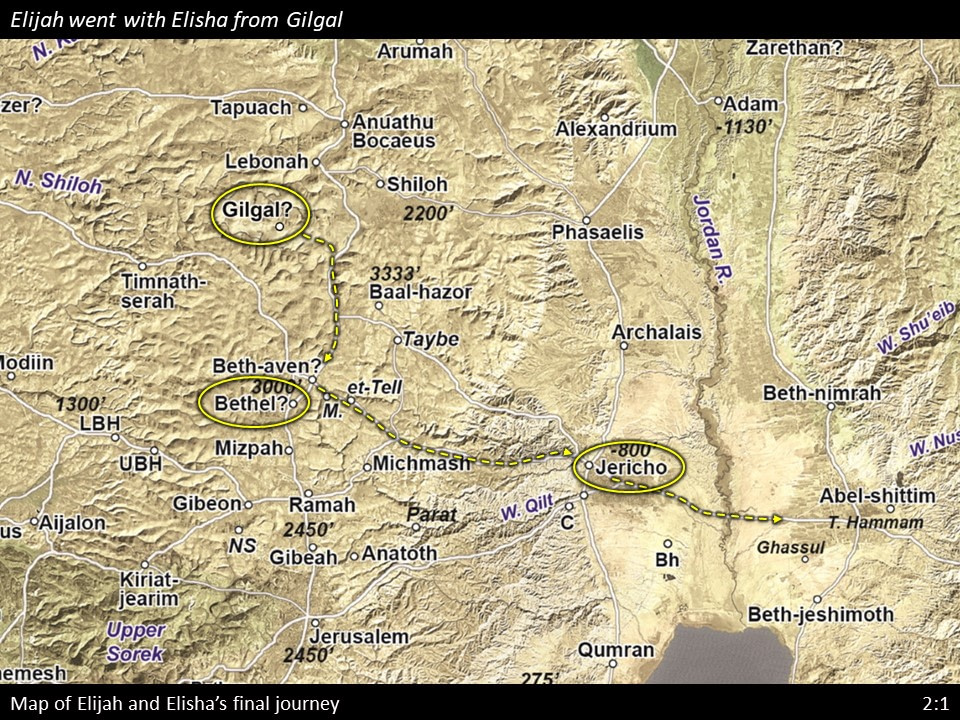
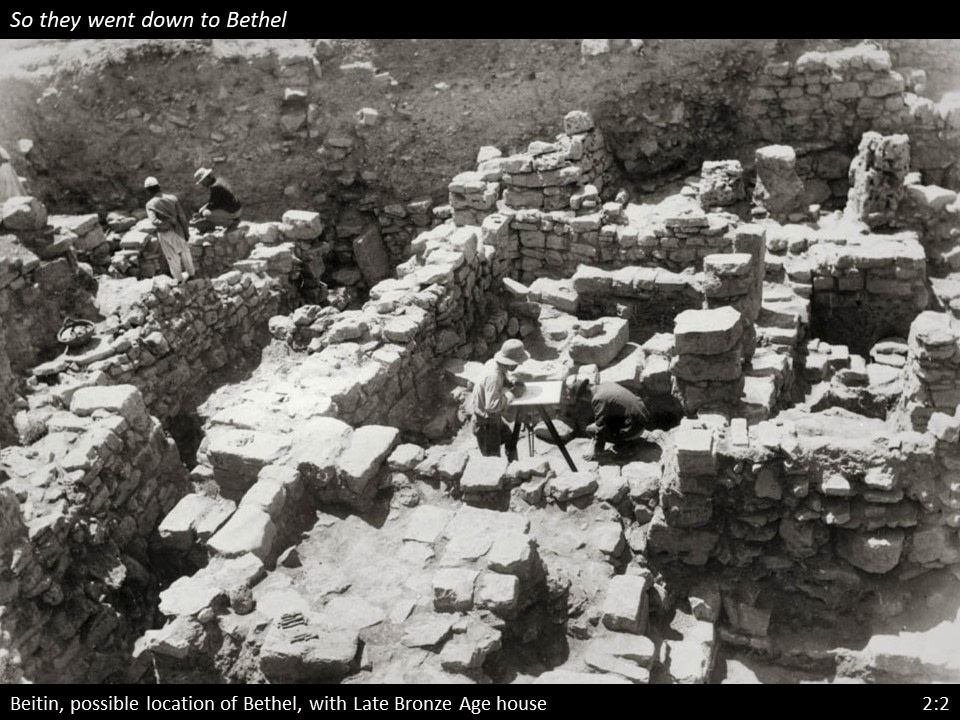
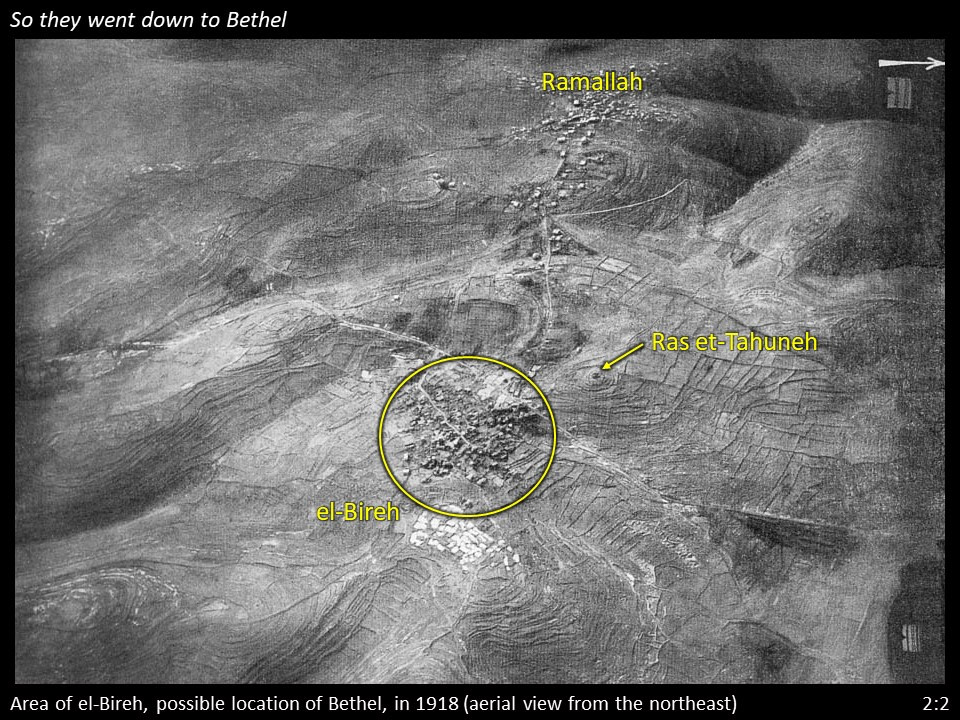
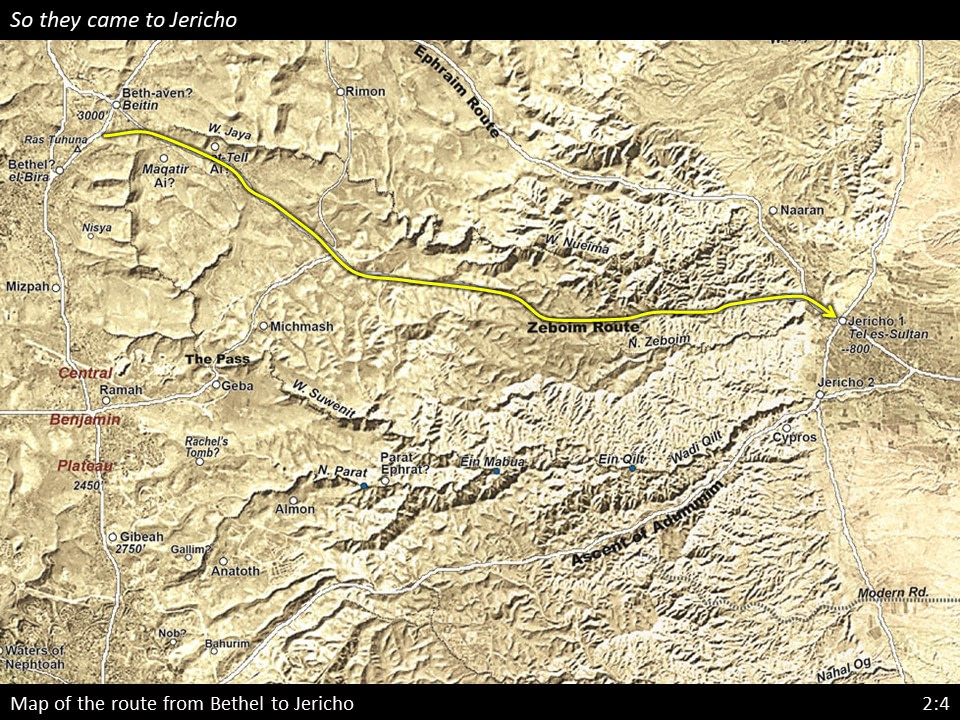
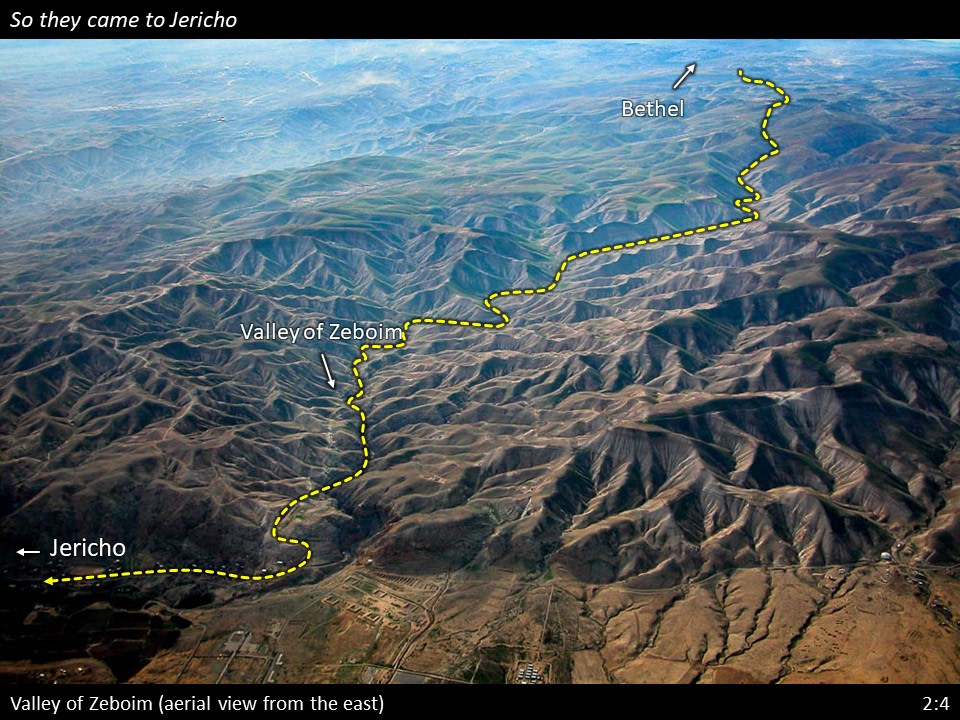
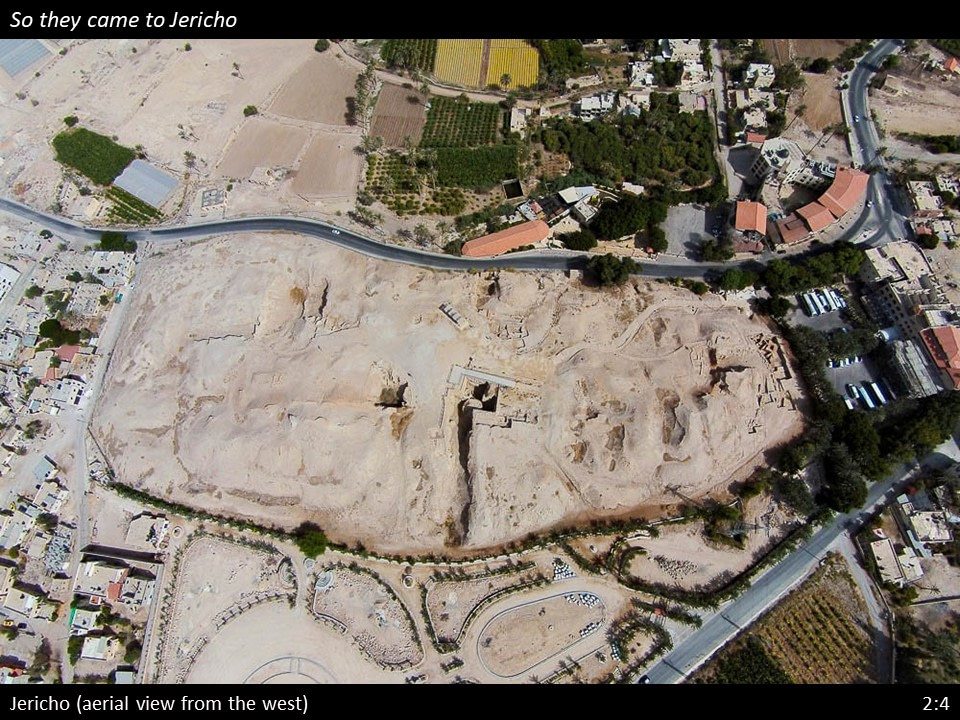
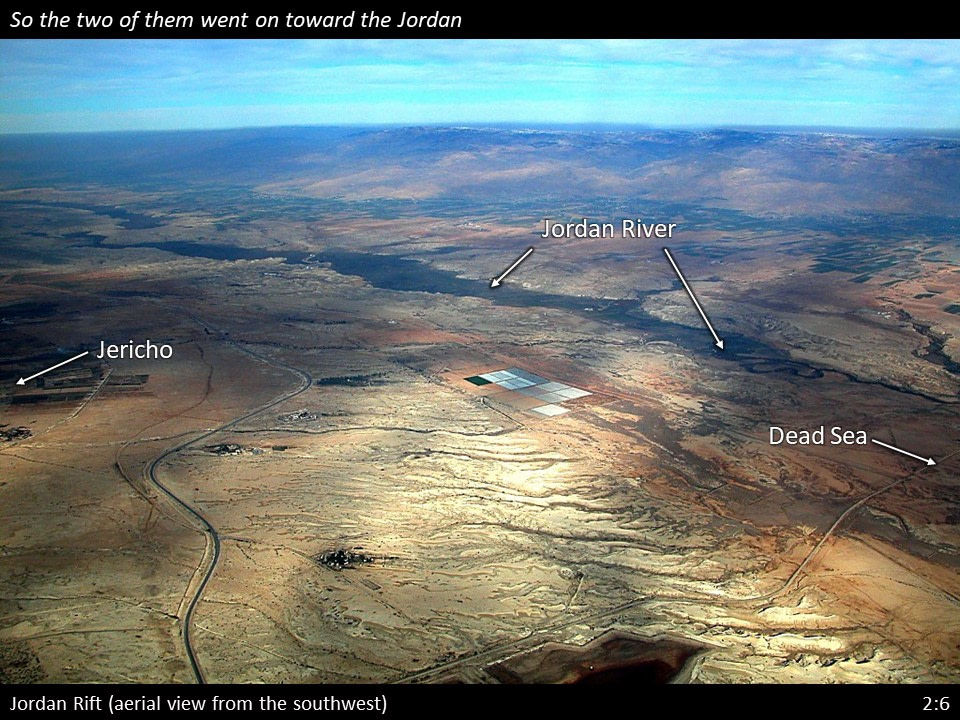
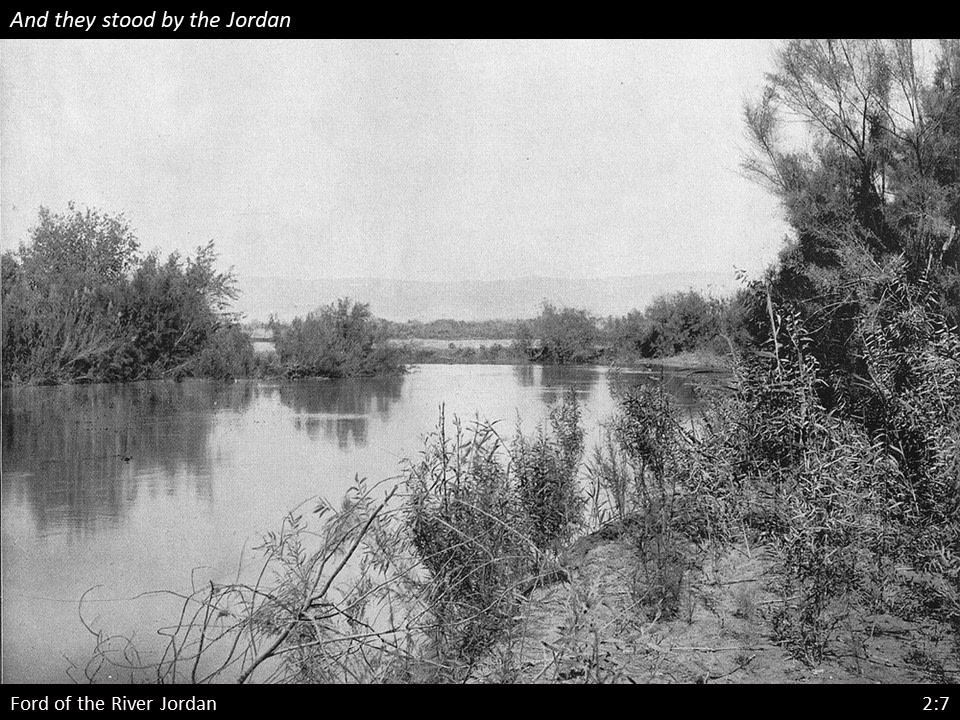
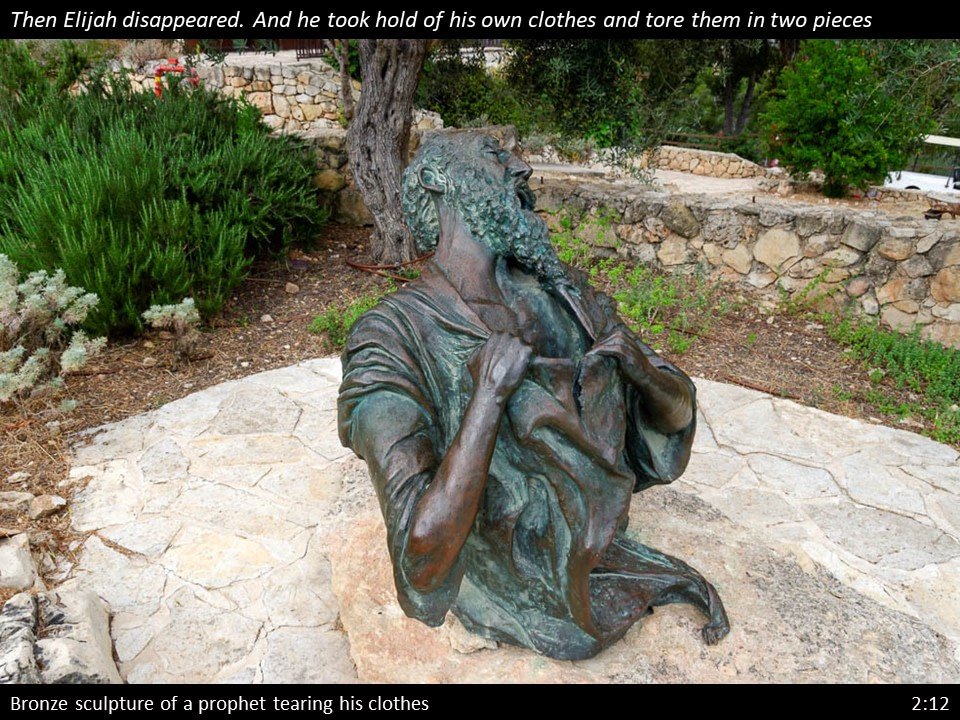
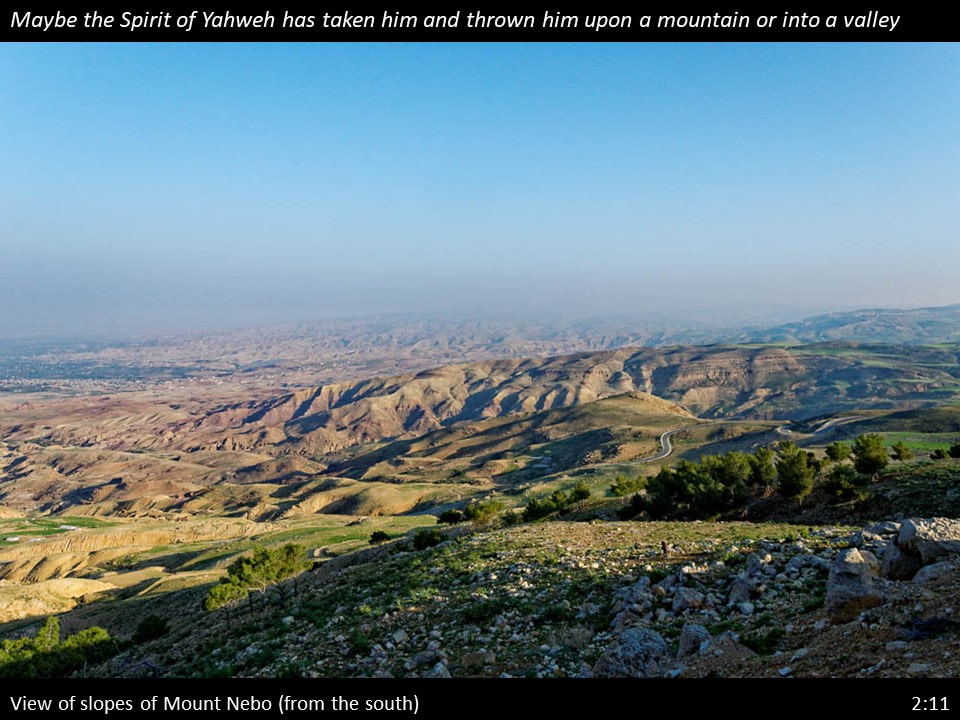
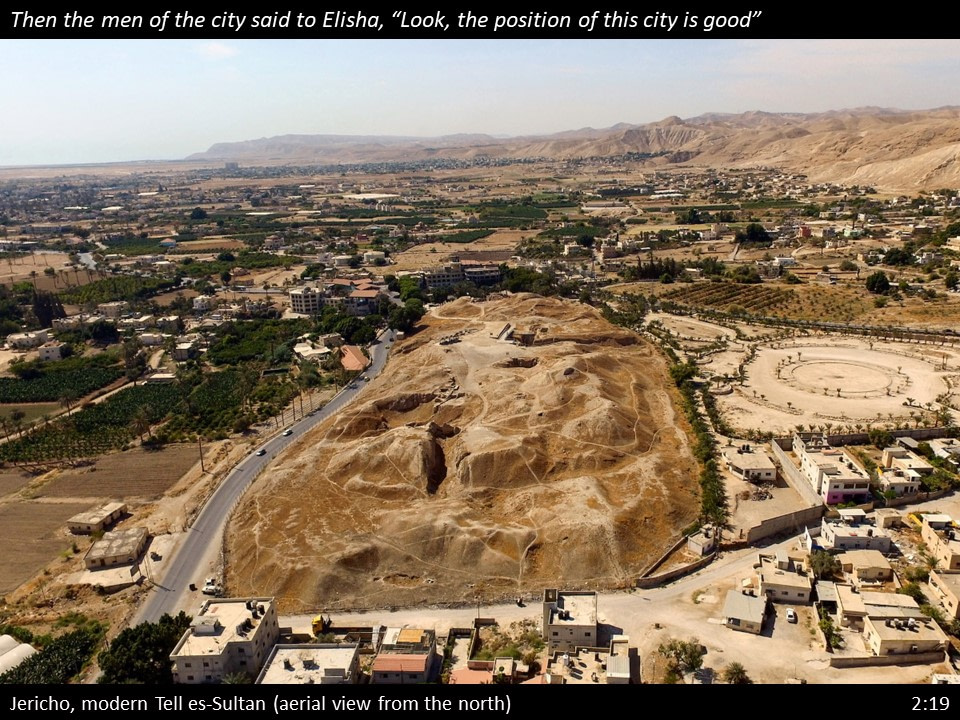
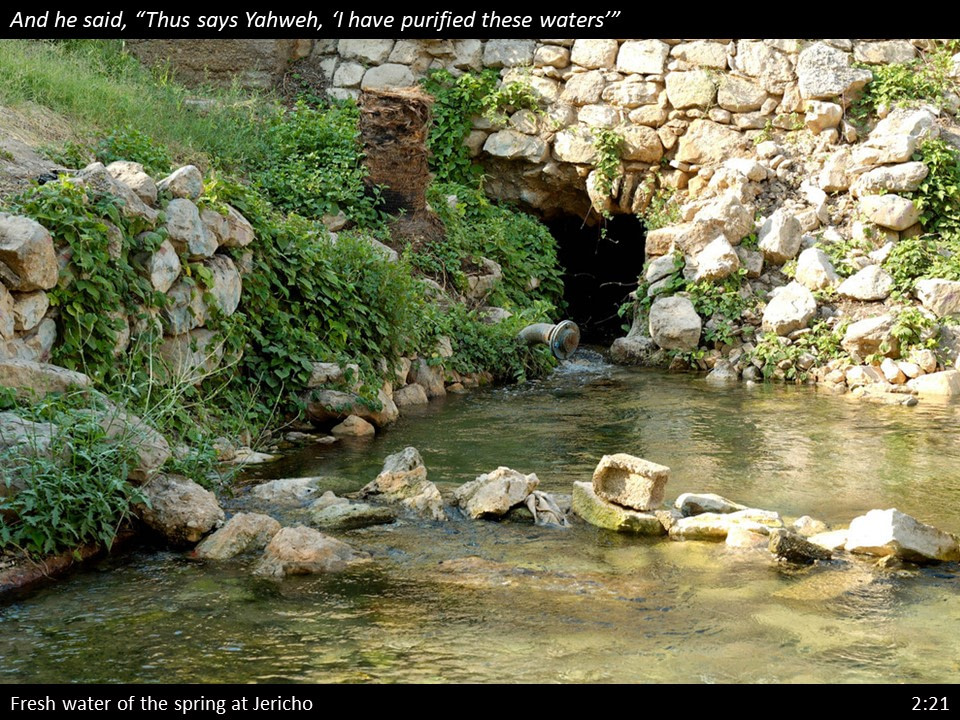
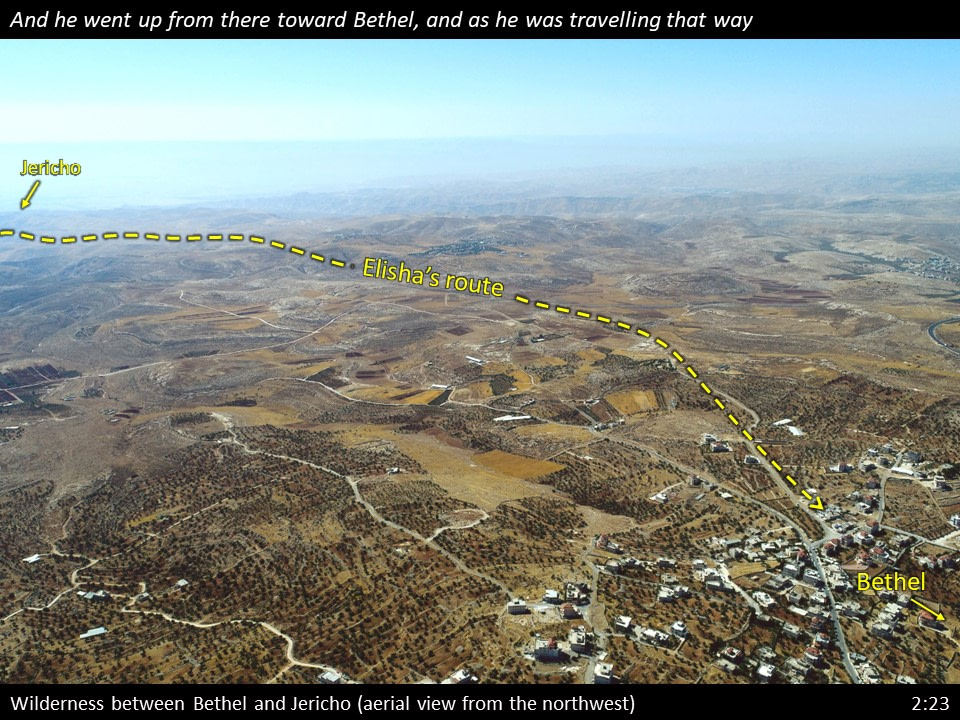
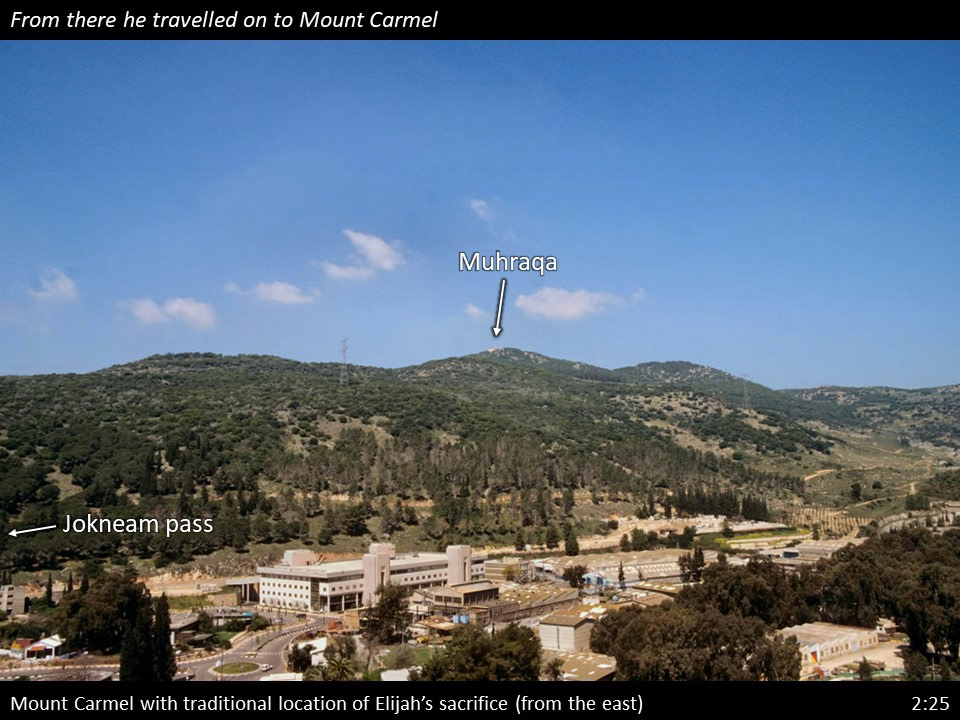
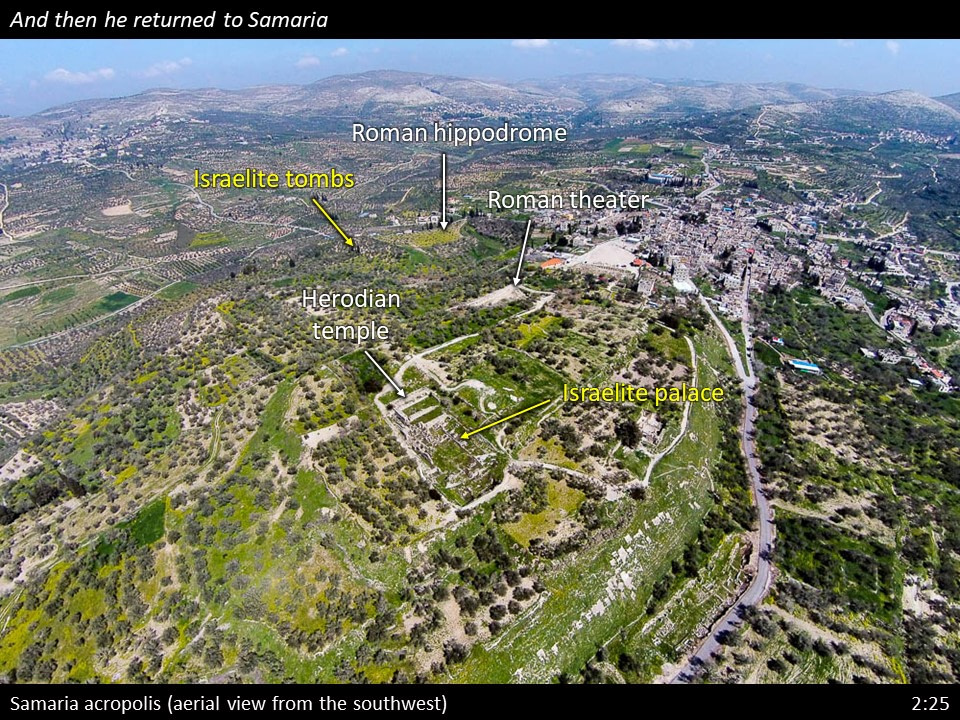
2 Kings 2 reveals Elijah’s time of ministry has come to a close.
In verses 1-12, as Elijah and Elisha were traveling from Gilgal, Elijah told Elisha to stay behind while he went to Bethel. Elisha refused to leave Elijah. From Bethel, they traveled on, and Elijah told Elisha to stay behind while he traveled on to Jericho. Again Elisha refused to leave Elijah. A third time Elijah told Elisha to stay behind while he traveled to Jordan and again Elisha refused to leave Elijah.
- Elijah asked what he could give Elisha before the Lord took him away and Elisha asked only for a double helping of his Spirit.
- Elijah promised that if Elisha saw him being taken up into heaven, he would inherit a double portion of his Spirit, otherwise, he would not.
- Elisha was with Elijah when God took him up into heaven, and his reward was the promised double helping of Elijah’s spirit.
In verses 13-22, Elisha performed two miracles right away.
- The first miracle was to part the waters of the Jordan river just as Elijah had done.
- The second miracle was to purify the water of the city of Jericho.
In verses 23-25, Elisha curses the young men:
- As Elisha was traveling to Bethel, some boy came out of the city making fun of him.
- Elisha cursed them in the name of the Lord and bears mauled 42 of them.
- From there Elisha went first to Mount Carmel and then returned to Samaria (the capital of the northern kingdom of Israel).
2 Kings 3
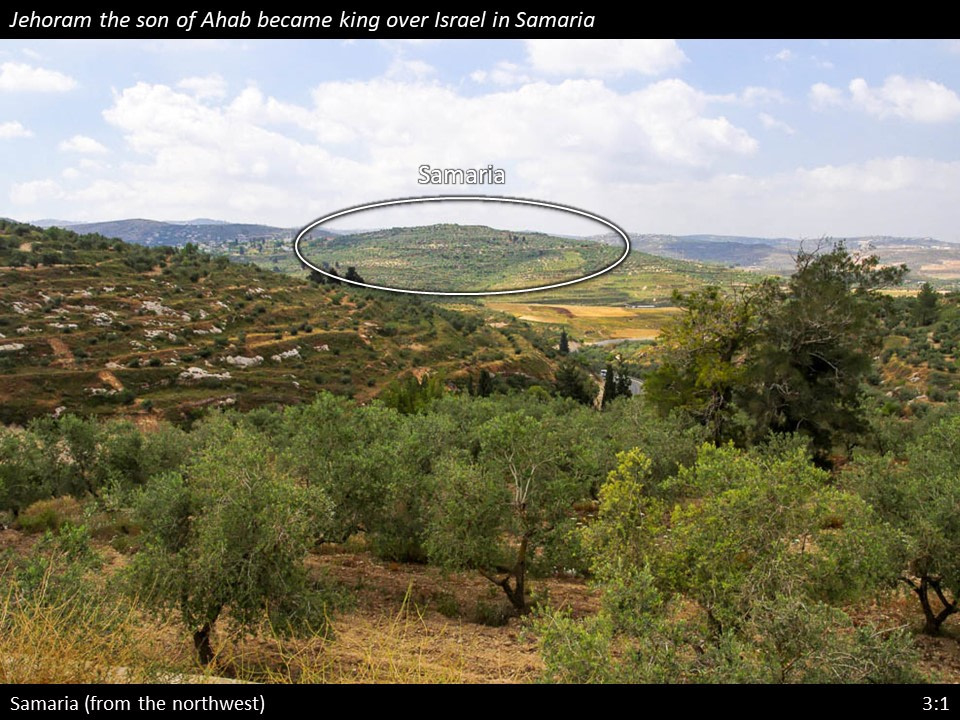
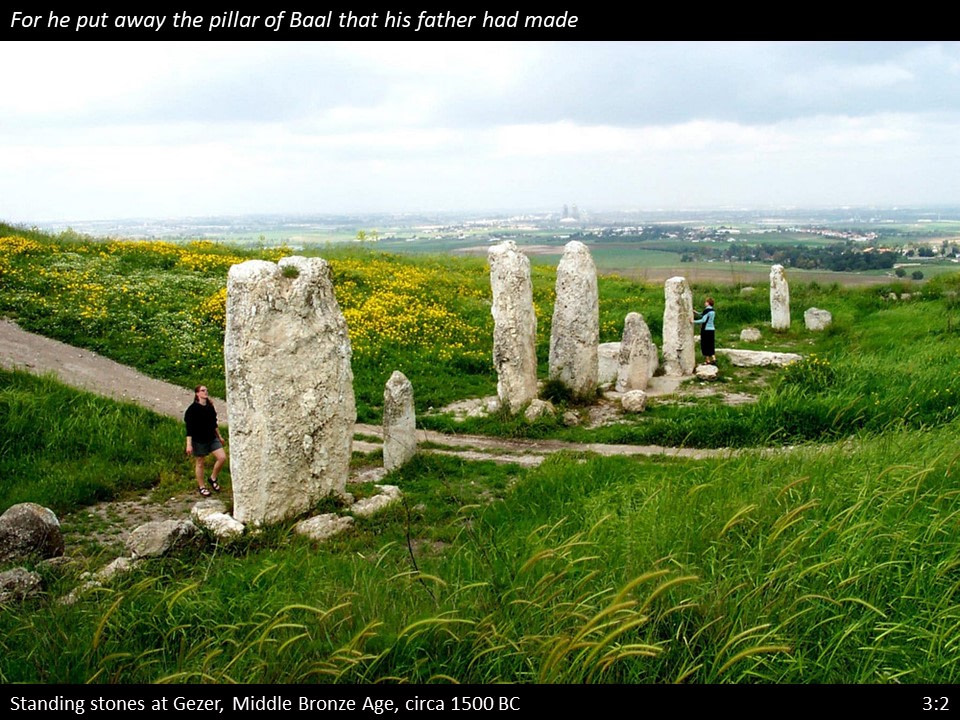
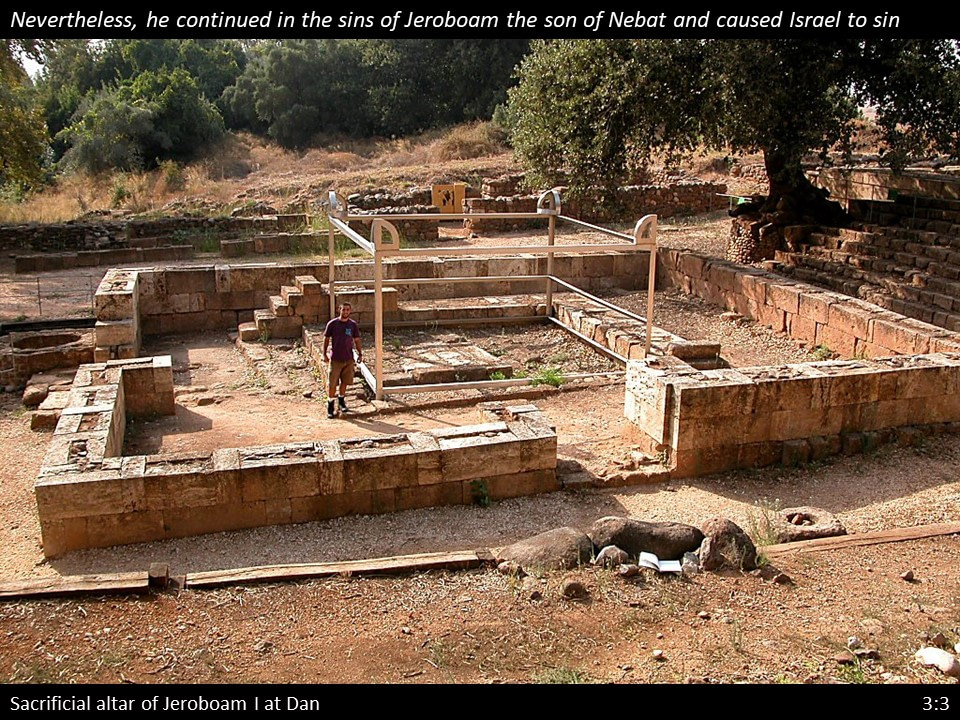
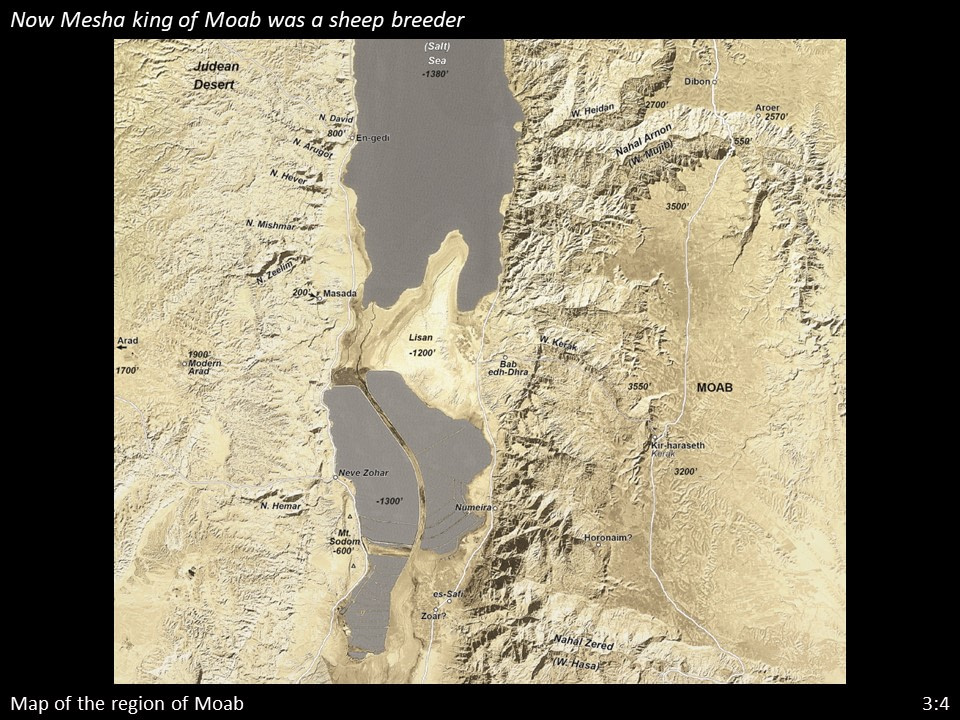
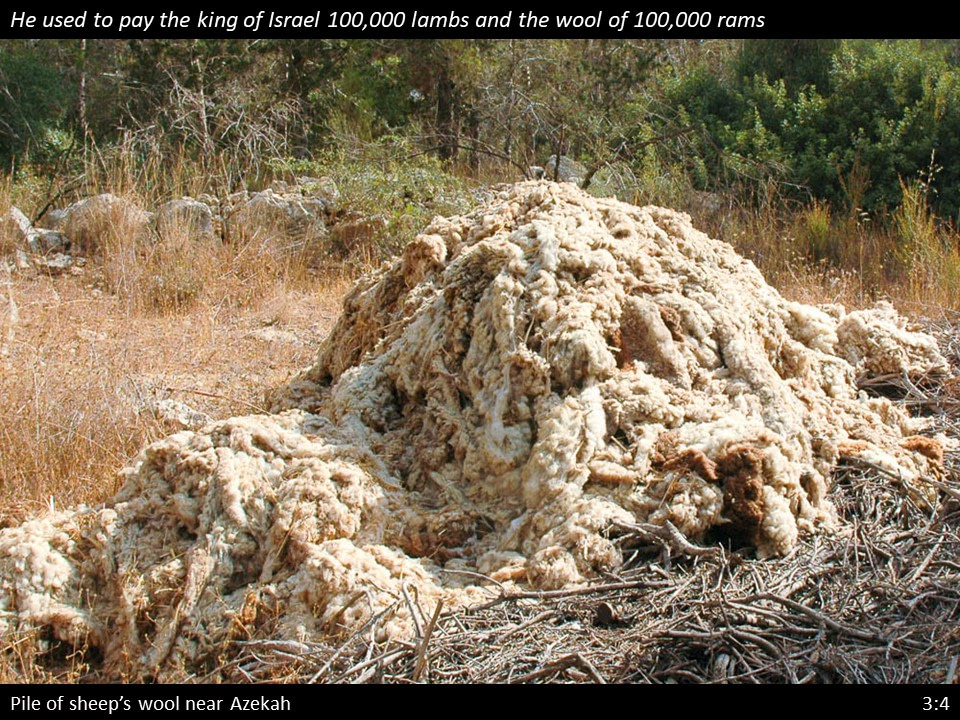
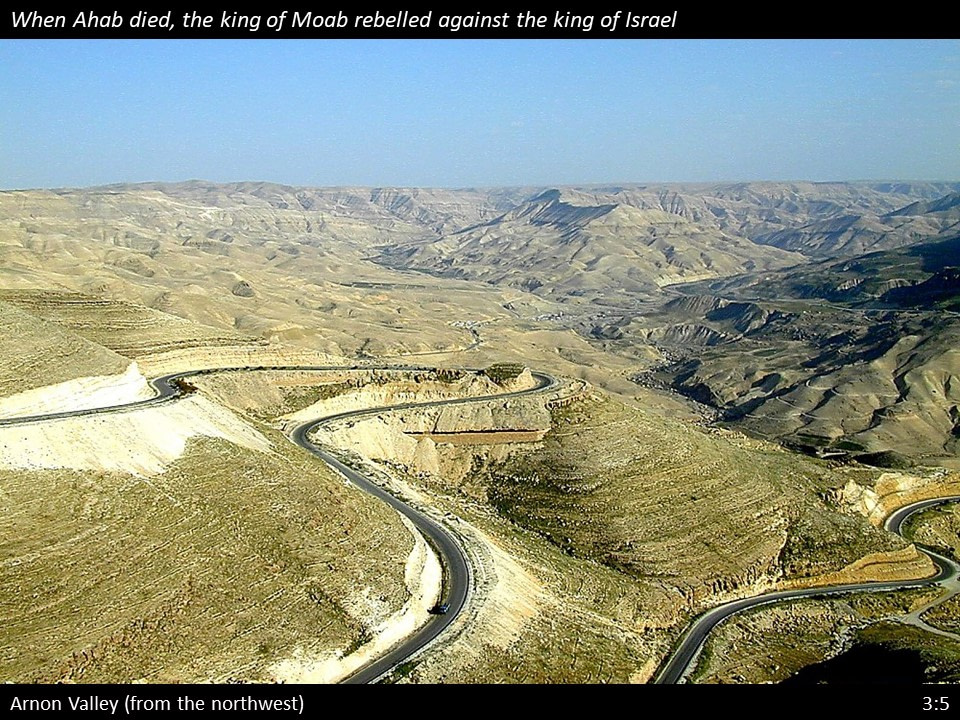
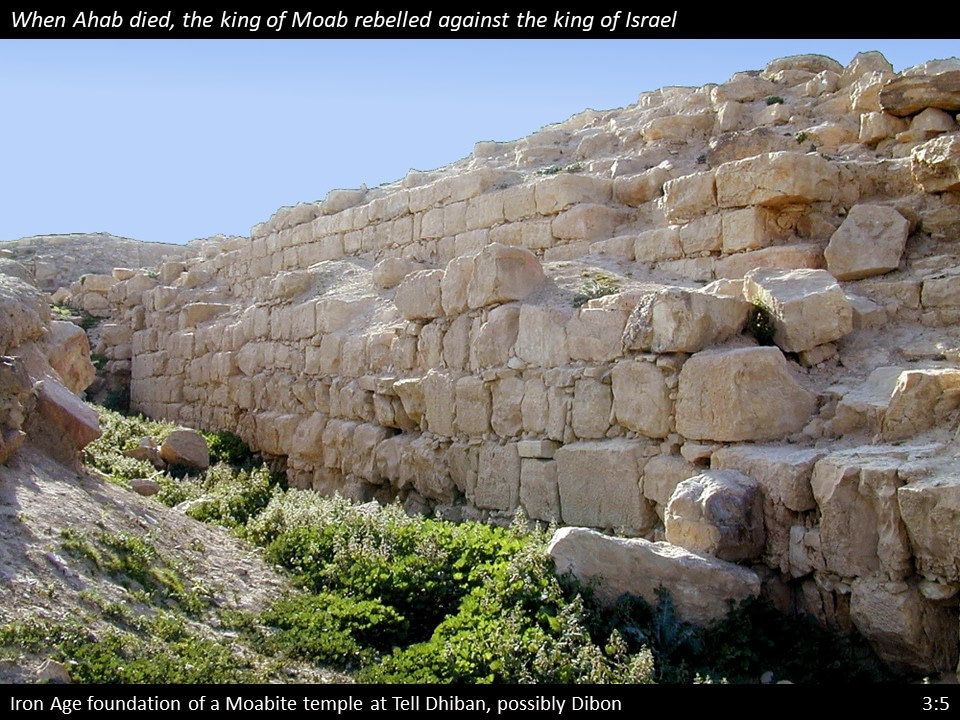
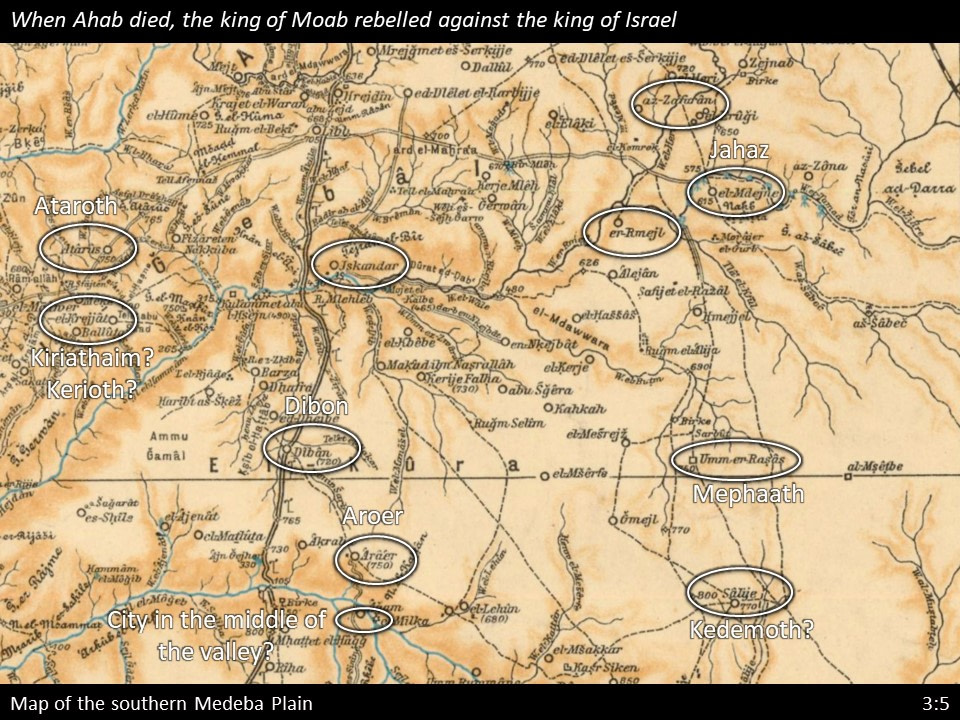
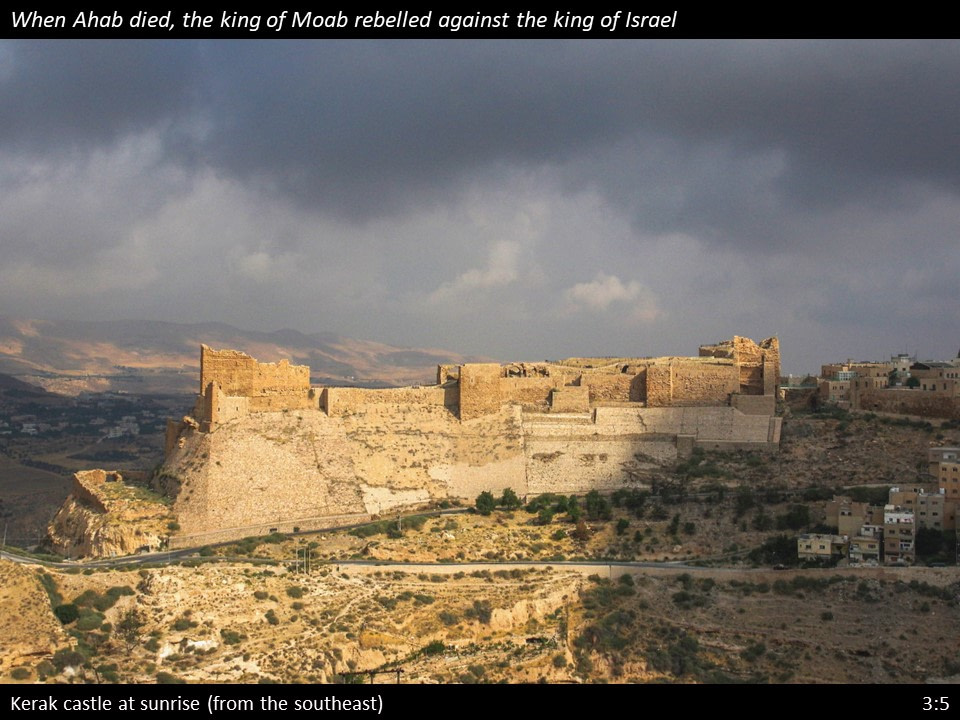
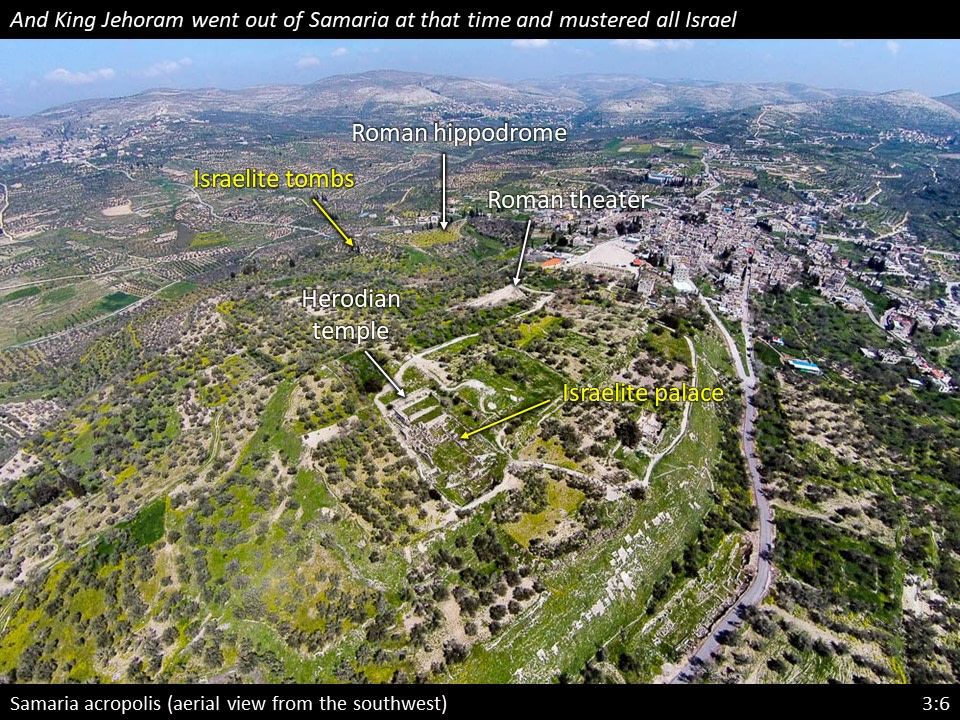
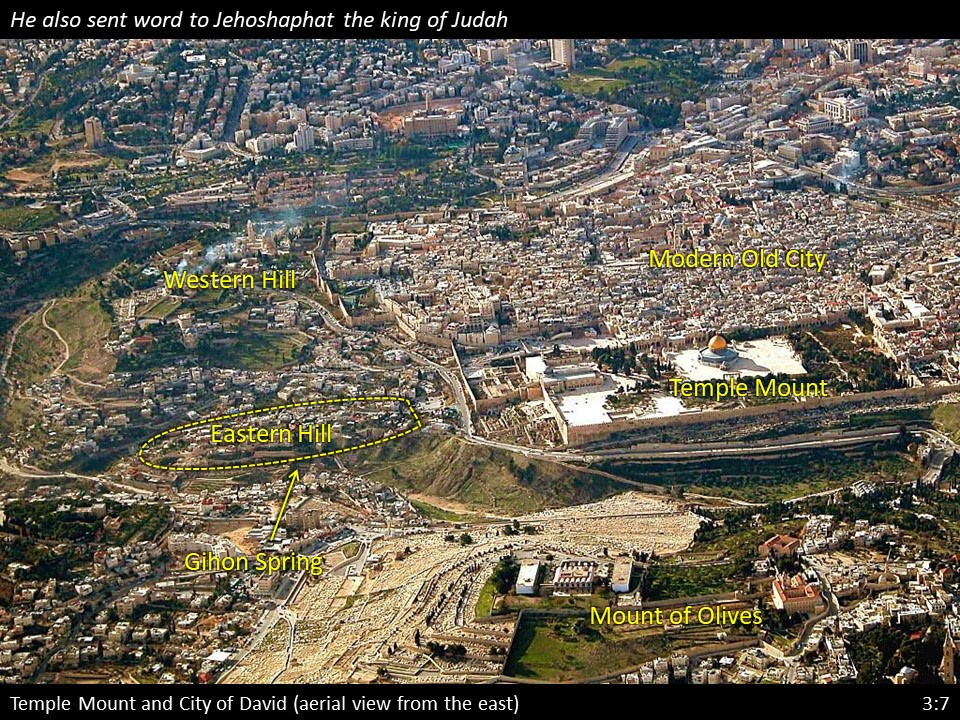
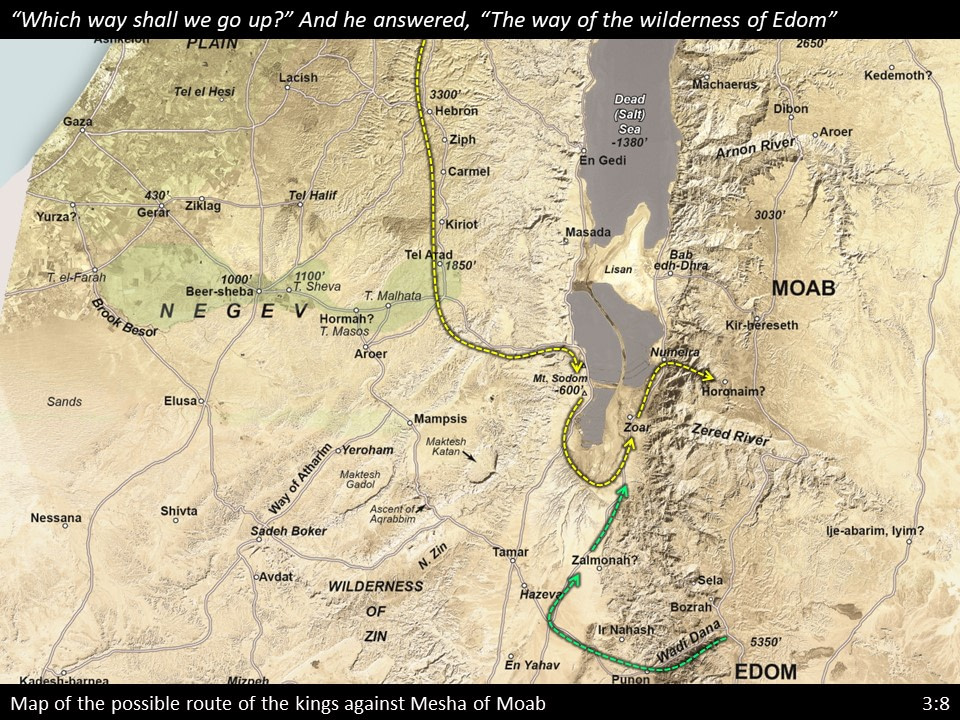
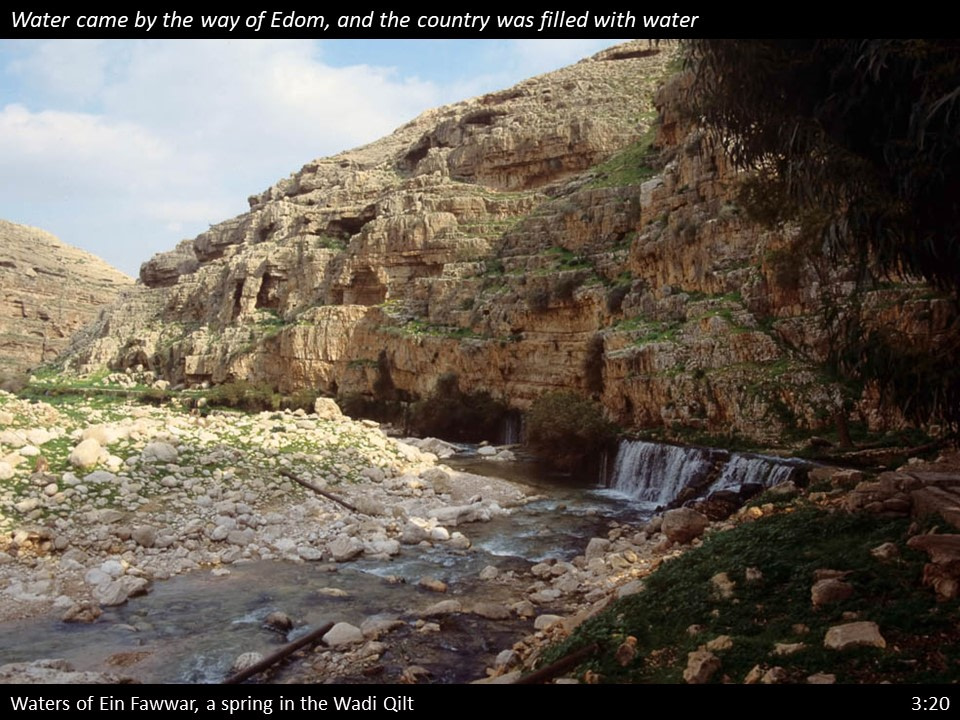
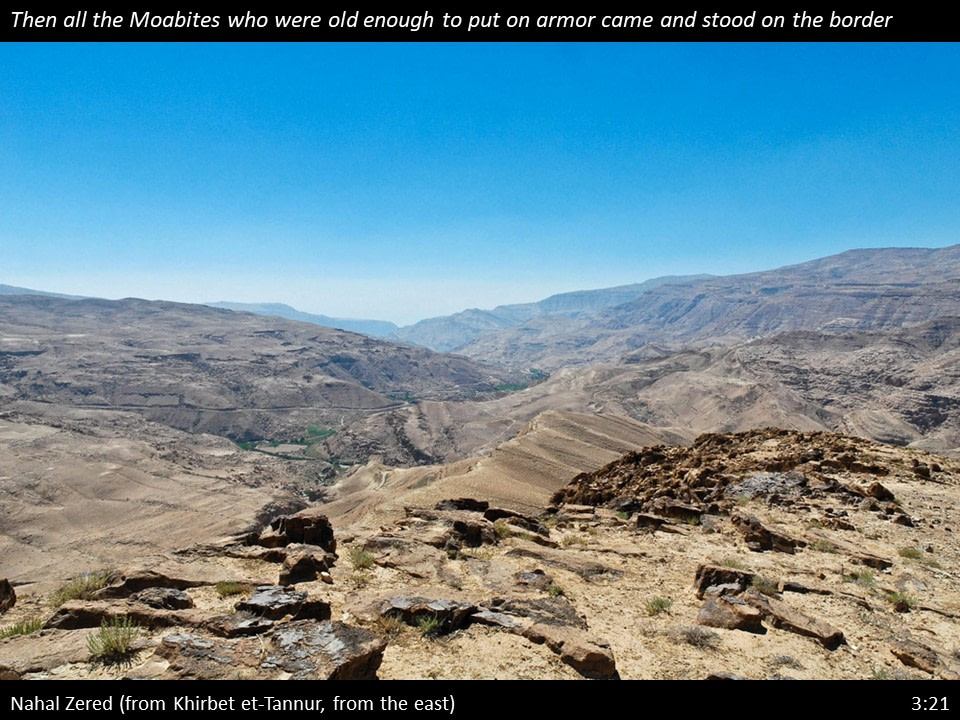
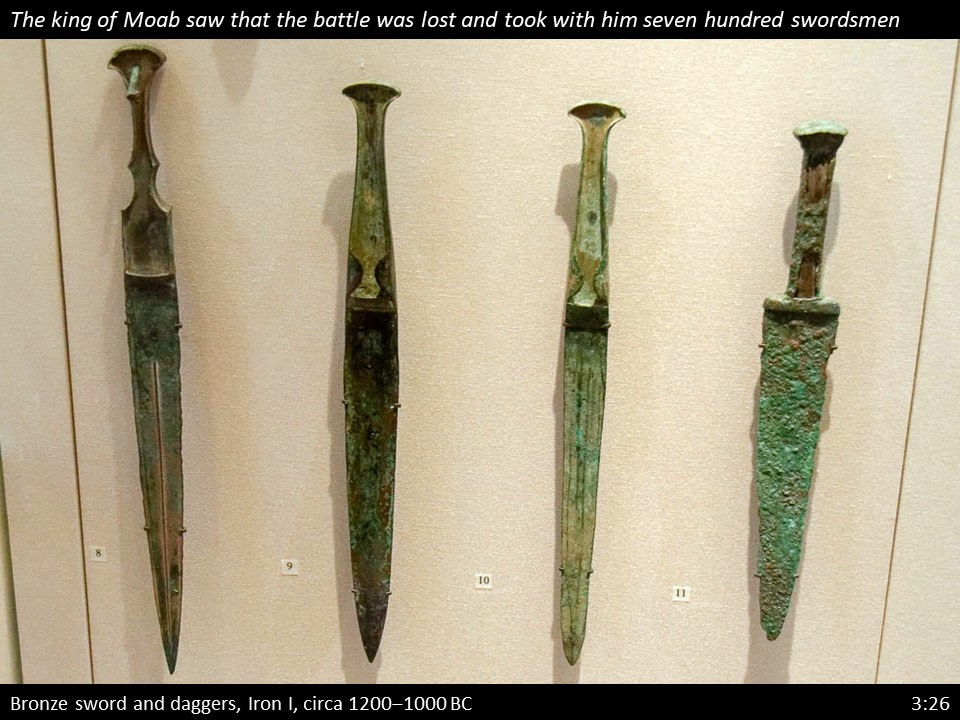
2 Kings 3 resumes the account of Moab’s rebellion against Israel.
In verses 1-3, Joram, son of Ahab became king of Israel. He was evil, but not as evil as his father, for he removed the pillar of Baal that his father had made.
In verses 4-27, the king of Moab had been paying a high tribute to the king of Israel but decided to rebel.
- Joram formed an alliance with Jehoshaphat, king of Judah, and the king of Edom to fight against Moab.
- Jehoshaphat suggested they inquire of God whether they would win their battle.
- Elisha agreed to give them God’s word because of Jehoshaphat.
- Elisha performed another miracle, providing water for the men and animals.
- Elisha told them God would hand the Moabites over to them, but that they were to completely destroy the Moabite land and all the cities.
- The Israelites defeated the Moabites, destroyed their land, stopped up their springs, and burned their cities.
- When the king of Moab realized he would lose the battle he sacrificed his own son as a burnt offering on the city wall. This so horrified the Israelites that they withdrew and returned home.
Some additional thoughts for consideration:
- The alliance between Jehoshaphat and Joram was problematic. One nation was more inclined to seek God and follow him than the other. Without God’s help in the battle, all three kings would have lost to the Moabites.
- We need to be careful when we make alliances that the people we join up with have God in their hearts and are faithful to follow Him. Without God, there is no victory!
What did you notice in your study today? Feel free to visit the website and leave a question or a comment.
Prayer Request? It is our honor to pray for you. You may write to us with your prayer requests at prayer@biblestudydaily.org.
Tomorrow: 2 Kings 4-5

